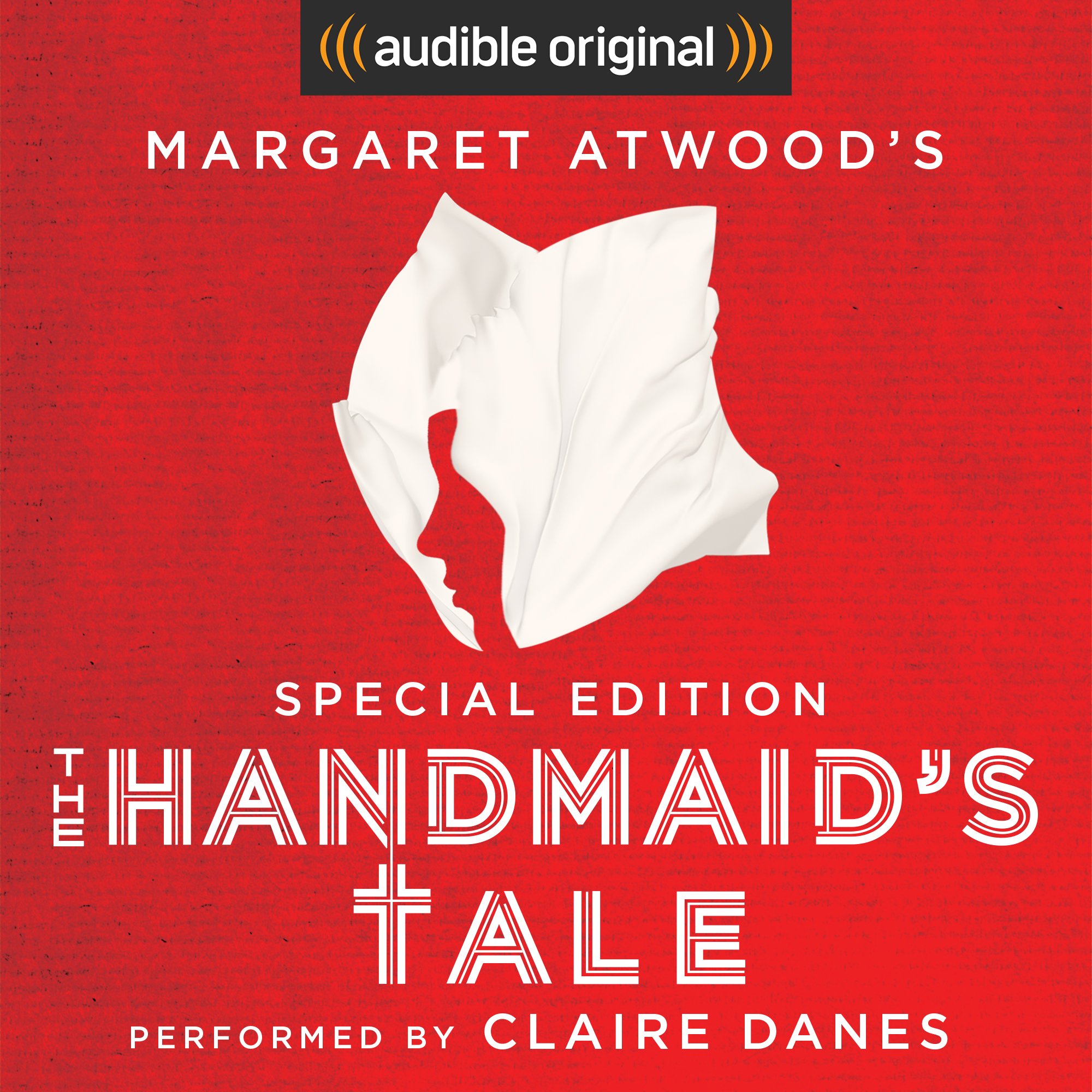Margaret Atwood‘s 1985 classic dystopian novel THE HANDMAID’S TALE debuts April 2017 as a streaming series on Hulu.com. The book has been a bestseller for decades, but has had a resurgence in the months since the 2016 election. The New Yorker calls her “the Prophet of Dystopia,” and the title is fitting. Her story of Offred, a Handmaid who is enslaved to bear children for a government leader and his wife, studies the role of women in a society that has slowly and quietly stripped them of their rights. The tale remains chilling today.
Atwood and the team at Audible have created a special new audiobook edition, adding new content from Atwood to the sparkling performance by Claire Danes released in 2012. Back then, AudioFile reviewer Leslie Fine gave the performance an Earphones Award—you can read her review of the “timeless and timely” audiobook here.
We reached out to Leslie to see what she had to say about the new content:
The Special Edition audiobook of Margaret Atwood’s THE HANDMAID’S TALE offers some thought-provoking new material, outlined below.
Questions and Answers
The original novel ends with a keynote lecture from the “12th Symposium on Gileadean Studies,” framing Offred’s disturbing story as a curiosity from the past and ending with the eerie “Are there any questions?” Atwood uses this Special Edition as an opportunity to ask and answer those questions, with an eye for current events in the United States. A full cast performs this section, and for the most part, the performances here are fine, with the keynote speaker assuming a lofty, supremely erudite tone that suits the content. The questions culminate in the ultimate one: “What sort of political climate do you think could potentially break apart our current stasis and deliver us back in time, so to speak?” Listeners may indeed be interested in that response.
Afterword
The Special Edition audiobook gives listeners insights into the author’s purpose, thanks to the new afterword by Atwood herself. The author’s measured reading of her essay calmly offers a brief history of the novel’s origins and reflects on its historical and social context. Her pacing is such that the listener has time to absorb her words without feeling pressed. Perhaps best of all, Atwood mentions questions readers have posed over the years and offers her thoughts on the answers. Listeners can almost feel like confidantes of an active, imaginative, perpetually-prescient mind.
Essay
Following Atwood’s excellent afterword is an additional critical essay by Valerie Martin, the content of which is quite thoughtful and enlightening as it explores the role of THE HANDMAID’S TALE in our culture since its publication. The listener is offered only “Essay” as a preface, and the pacing here is much more hasty, which does detract somewhat from the experience. However, the ideas themselves are worth hearing. On another production note, this section would benefit from a more distinct separation from the Atwood piece, one that would include the author’s name at the outset, rather than leaving Martin’s name until the end.
If you haven’t yet read THE HANDMAID’S TALE, this audiobook is an excellent way to challenge your mind and perceptions. If you are already a fan of this novel, this Special Edition will offer you even more to think about.—Leslie Fine
What are your favorite book-to-screen adaptations? Share yours in the comments!





